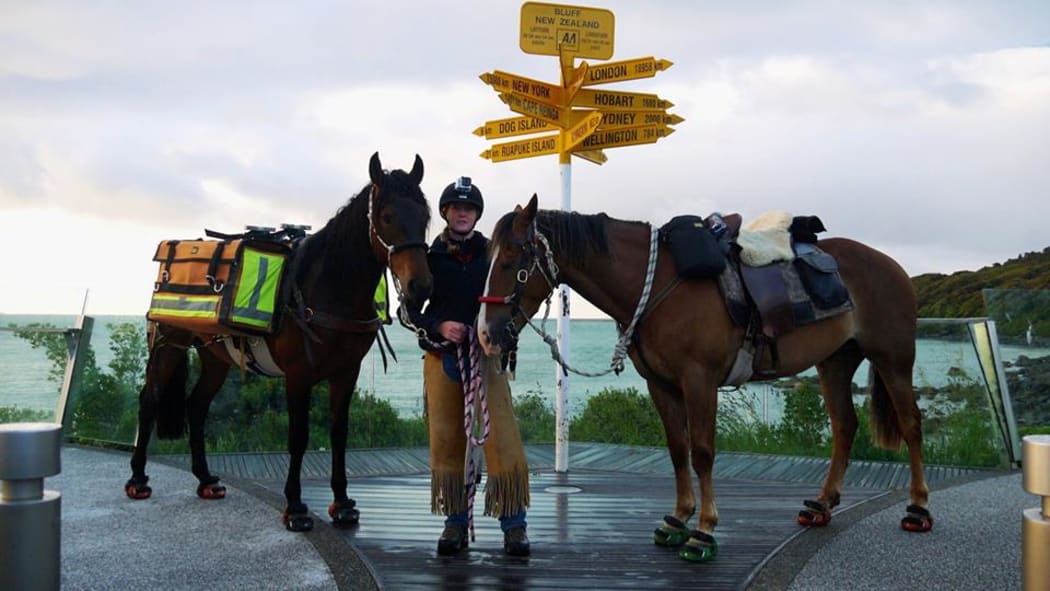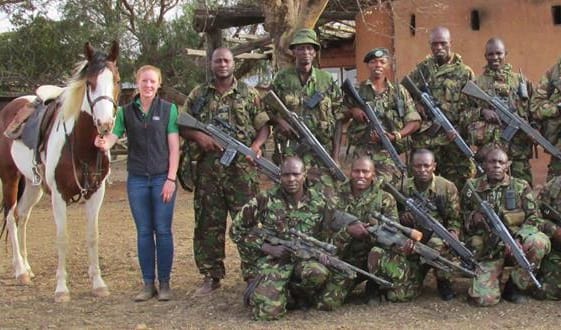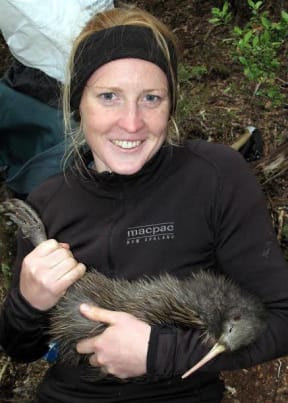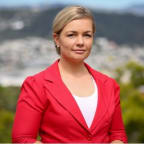Louise McNutt is riding two Kaimanawa horses from Cape Reinga to Bluff to try and save the breed from slaughter at the biennial muster.
The 30-year-old from Central Hawke's Bay has spent eight years saving for the 2500km trip and many months planning the route, training the horses, organising supplies and finding sponsors.

Louise McNutt sets off on her journey. Photo: Supplied
Ms McNutt is the first person to ride the length of New Zealand on Kaimanawas. Her horses, Pedro and Koru, are both Kaimanawas, but Koru is a very new addition - he was bought as a wild stallion in April.
"Part of it is just the personal challenge - to see whether I can actually do the whole process and pull off the ride itself.
"On top of that I wanted to make my ride a bit different and decided to add another challenge by taking a stallion out of the Kaimanawa muster and training him up to do this trek - I hope to show that these ponies are pretty amazing and show just what they are capable of."
During the 1997 muster, 1100 Kaimanawa horses were culled, and in 2010 changes in the Wild Horse Management Plan saw the herd size reduced down to 300, which continues to be the accepted limit for wild horses in the Kaimanawa Ranges today.
Ms McNutt said some stretches of the route involved a lot of road riding, which was hard on the horses feet and quite dangerous.
"I'm trying to stick to back country roads to avoid the worst of the traffic. Some places there's narrow verges, big truck and trailer units going past and traffic at high speed - that's been the biggest challenge to date."
As her route takes her further north through the middle of Southland and through private property and big sheep stations, she said there would be other risks.
"As I start to get into more of the back country it'll be things like the weather and river levels because there are a few major river crossings to do."
Ms McNutt is aiming to reach Cape Reinga in June or July. The trip is mostly self funded, but she said she had been lucky to get sponsorship from horse nutrition and shoeing companies. She had also been given wet weather gear.
Her partner has put food drops along the planned route, but she said everything else was on her packhorse.
"I'll be self sufficient and carrying everything I need for ten-day stints. I'll have all my safety equipment, additional feed for the horses, all my personal gear and camping gear, and up to 10 days worth of food."
Ms McNutt's background has her well prepared for this type of adventure - she was raised on a sheep farm just out of Waipukurau in Hawkes Bay, and has a Master of Science degree in Applied Ecology from Norway.
Her passion for conservation has taken her all over the world to work and volunteer, including at a Siberian Tiger project, in reindeer research, on a snow leopard project in Mongolia and wildlife monitoring in Kenya.

Louise McNutt with an anti-poaching unit in Kenya. Photo: Supplied
Louise started planning and training for the 2500km trip from Bluff to Cape Reinga, that she had dreamed of for years, earlier this year.
Ms McNutt is in the first week of her journey and is riding through Southland.
"Last night I called into a farm, it was a downpour and quite miserable riding on the road. I saw a woolshed and pulled into the farm, I asked if they wouldn't mind if I popped the horses in the yard and camped in the woolshed - they were amazing. Everyone has been so incredibly helpful."

Louise McNutt wants to raise money for a Kiwi conservation group. Photo: Supplied
Ms McNutt said Christmas Day will be a very low-key affair.
"If I carry on the way we're going I will be sort of in the middle of nowhere, probably just camping in my tent having a relaxing day - hopefully it's not raining!"
The lack of company doesn't worry her.
"I've had plenty of offers (for company), but at this stage I just wanted to get into a bit of a routine. It's me and the ponies, and I wanted it that way to start."
She said it had been hard work to pull the trip together, but there was a lot of support.
"I'm really grateful to all of my sponsors for their support as well as all the people who have shared their time knowledge and experiences with me to help get this ride under way."
The trip will also raise money for a kiwi conservation group in the Kaweka Ranges, and Louise hopes to raise at least a dollar for every kilometre she rides.


